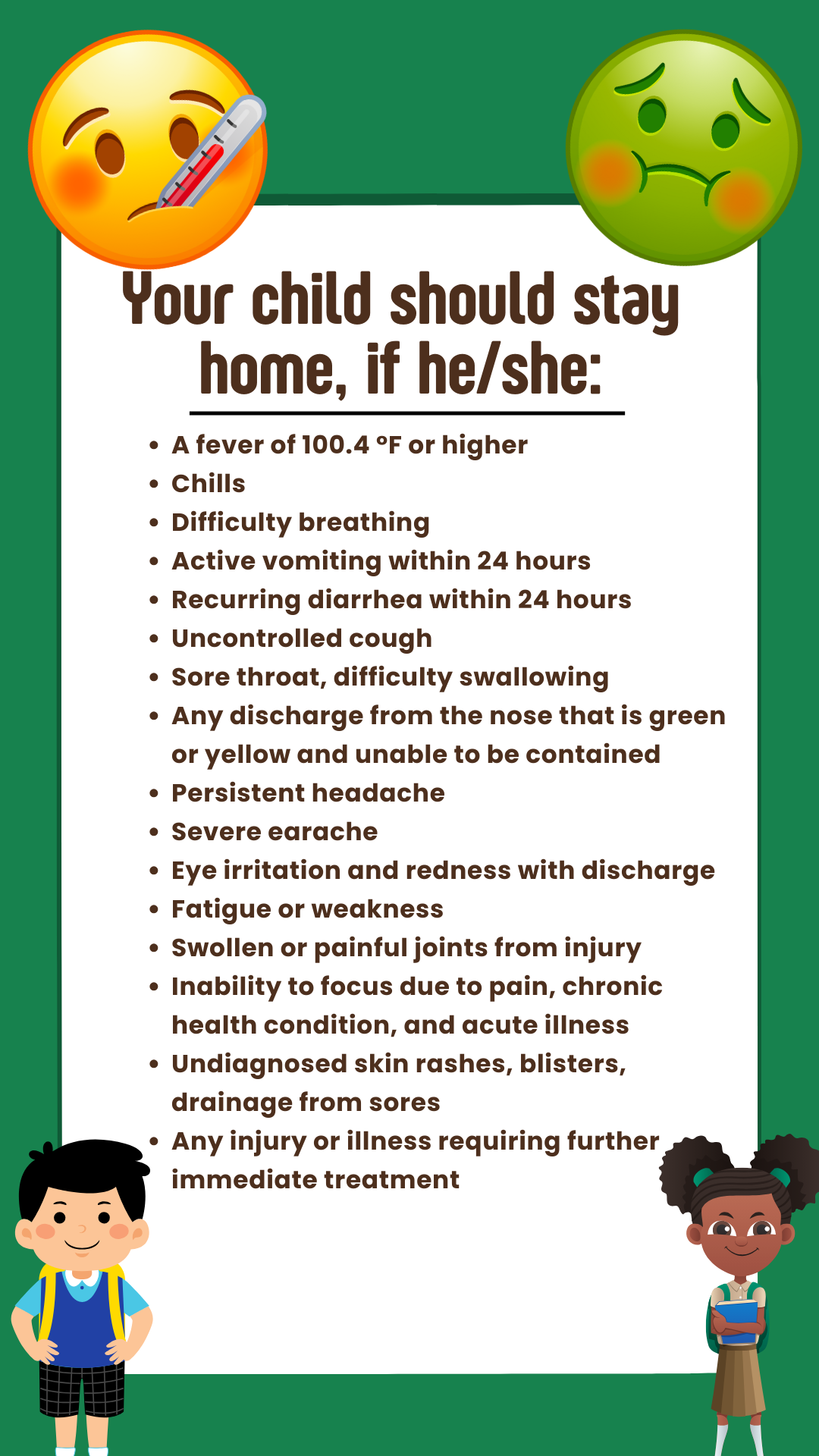STUDENT HEALTH
PHSSA's school nurse will provide health services during school hours.
- If your child becomes ill or injured while at school, he/she will be sent to the clinic. If the illness or injury is serious, the school will contact those individuals designated on the student's Emergency Contact Form.
- In the event of a medical emergency, emergency services will be contacted. If the student requires emergency transportation services, a school staff member will accompany the student and the parent will be contacted.
- If your child is diagnosed with food or environmental allergies, asthma, diabetes, seizures, and/or other chronic health conditions, please notify the school nurse and your child's teacher. It is our goal to work with families and students to ensure PHSSA students receive the best care possible while at school. However, if we are not notified of health conditions, we are unable to provide quality health services.

School Exclusion Guidelines
When your child should not be in school:
SYMPTOMS
- A fever of 100.4 °F or higher
- Chills
- Difficulty breathing
- Active vomiting within 24 hours
- Recurring diarrhea within 24 hours
- Uncontrolled cough
- Sore throat, difficulty swallowing
- Any discharge from the nose that is green or yellow and unable to be contained
- Persistent headache
- Severe earache
- Eye irritation and redness with discharge
- Fatigue or weakness
- Swollen or painful joints from injury
- Inability to focus due to pain, chronic health condition, and acute illness
- Undiagnosed skin rashes, blisters, drainage from sores
- Any injury or illness requiring further immediate treatment
PARENTS/GUARDIANS:
Please do not send your child to school if they are experiencing any of the above symptoms. If your child develops any of these symptoms while at school, you will be contacted by your school’s nurse to pick up your child. Please be prompt when picking up your ill child to minimize their chances of spreading or acquiring a contagious illness.
Ensure your child’s school has your current telephone number and emergency contact list.
BEST PRACTICE
Best practice indicates that a person should be fever-free for at least 24 hours without fever-reducing medication and have improved symptoms before returning to school. In certain circumstances, a note from a physician clearing the return to school may be requested.
*Please note that the list above is not all-inclusive, and a decision to exclude a child from school is also based upon the nurses’ judgment and discretion and consultation from area physicians and the health department. These guidelines are in place for the safety and protection of all students and staff.
Please refer to pages 8 and 9 of the Student Handbook for further information.

